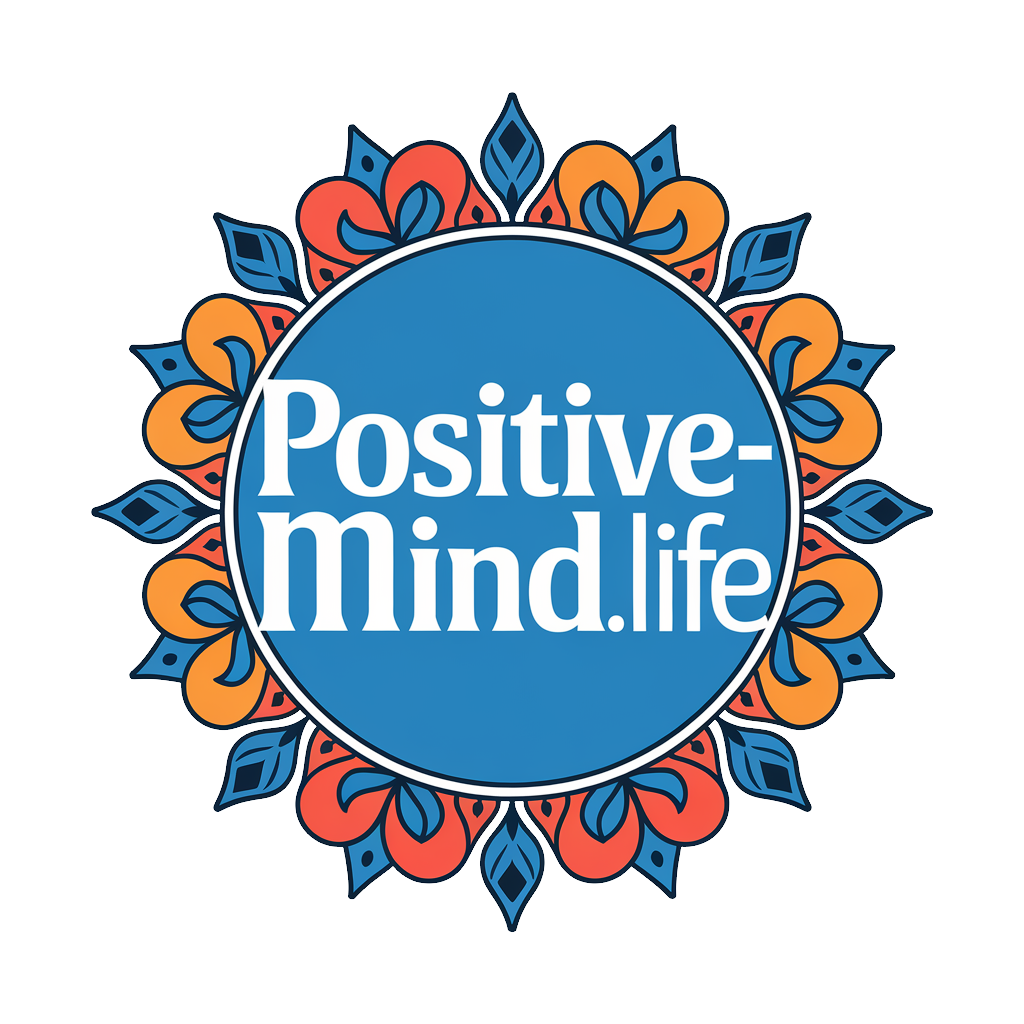Want More Happiness Start Practicing Gratitude Right Now!
If you want more happiness, start practicing gratitude right now! Gratitude shifts your mindset and boosts emotional resilience. Studies show that regularly acknowledging what you appreciate can lower stress and anxiety while enhancing your overall well-being. Simple practices like daily journaling or expressing thanks can deepen your connections with others, creating a positive feedback loop. These techniques not only foster a sense of community but also lead to long-term benefits, including improved sleep and reduced symptoms of depression. You’ll find that embracing gratitude enriches your life, making you feel more fulfilled and connected, and there’s more to discover about its impact.
Key Takeaways
- Start a daily gratitude journal to reflect on positive experiences and shift your mindset towards appreciation and happiness.
- Practice gratitude meditation techniques, such as mindful appreciation and visualization, to enhance emotional well-being and promote relaxation.
- Express thanks to others regularly through verbal acknowledgments or appreciation notes, strengthening your relationships and boosting happiness.
- Engage in group gratitude practices, like gratitude circles, to foster community connections and create a supportive environment.
- Consistently recognizing gratitude reduces stress and anxiety, leading to improved mental health and greater overall life satisfaction.
Understanding Gratitude’s Impact
Gratitude plays a crucial role in shaping our emotional well-being and overall happiness. When you explore the impact of gratitude, you’ll find that it transcends individual experiences, deeply rooted in cultural perspectives. Different societies have unique gratitude rituals that foster connection and appreciation within communities. For instance, in many Indigenous cultures, expressing gratitude is woven into daily life, reinforcing social bonds and a sense of belonging.
Research indicates that these rituals not only enhance social cohesion but also contribute to personal fulfillment. When you actively participate in gratitude practices—whether through journaling, sharing appreciation with others, or engaging in community service—you engage in a transformative process. This process shifts your focus from scarcity to abundance, allowing you to recognize the positive elements in your life.
Moreover, understanding the cultural nuances of gratitude can deepen your practice. You might discover that what resonates in one culture may provide fresh insights in another. By integrating these diverse gratitude rituals into your life, you cultivate a more profound appreciation for your experiences and relationships. Ultimately, this awareness not only enriches your life but also enhances your capacity for joy and satisfaction.
Mental Health Benefits of Gratitude
Practicing gratitude significantly boosts your emotional resilience, allowing you to navigate challenges with a more positive outlook. Studies show that individuals who regularly express gratitude experience enhanced overall well-being, leading to lower levels of stress and anxiety. By incorporating gratitude into your daily routine, you can foster a healthier mindset and improve your mental health outcomes.
Boosts Emotional Resilience
Among the many emotional benefits of cultivating gratitude, its ability to enhance resilience stands out prominently. When you practice gratitude, you’re not just acknowledging positive experiences; you’re actively reshaping your emotional landscape. This shift fosters emotional strength, allowing you to navigate life’s challenges with greater ease.
Research demonstrates that gratitude contributes to resilience building by promoting a positive mindset. When you focus on what you’re thankful for, your brain releases neurotransmitters like dopamine and serotonin, which are essential for emotional regulation. This biochemical response fortifies your mental framework, making it easier to cope with stress and adversity.
Moreover, gratitude encourages a proactive approach to setbacks. Instead of succumbing to negative emotions, you learn to frame difficulties as opportunities for growth. This perspective shift is crucial for enhancing resilience, as it empowers you to view challenges through a lens of possibility rather than defeat.
Incorporating gratitude into your daily routine can create a robust buffer against emotional turbulence. By consistently acknowledging what you appreciate, you reinforce your emotional resilience, positioning yourself as a more adaptable individual in the face of life’s inevitable ups and downs.
Enhances Overall Well-Being
The practice of gratitude significantly enhances overall well-being, particularly in mental health. Engaging in gratitude practices can foster a profound shift in your emotional landscape. Research consistently demonstrates that individuals who regularly express gratitude experience lower levels of stress and depression. By consciously acknowledging the positives in your life, you cultivate a mindset that prioritizes emotional well-being.
When you reflect on what you’re thankful for, you activate areas of the brain associated with the release of dopamine and serotonin—neurotransmitters linked to happiness. This biochemical response not only elevates your mood but also fortifies your resilience against negative emotions. Moreover, gratitude practices encourage a sense of connectedness, reducing feelings of isolation and enhancing social bonds.
Incorporating gratitude into your daily routine can be as simple as keeping a gratitude journal or practicing mindfulness meditation focused on appreciation. These strategies not only enrich your emotional well-being but also promote a more optimistic outlook on life. Ultimately, by making gratitude a habitual practice, you’re not just boosting your mood; you’re crafting a sustainable foundation for lasting mental health and overall well-being.
How Gratitude Affects Happiness
Gratitude significantly influences happiness by reshaping how you perceive and engage with the world around you. When you cultivate a gratitude mindset, you begin to notice the positive elements that often go overlooked. This shift in perspective fosters an emotional resilience that enhances overall life satisfaction.
Consider how gratitude affects your happiness in the following ways:
- Increased positivity: You start appreciating small moments, like a warm cup of coffee or a kind word from a friend.
- Strengthened relationships: Expressing gratitude deepens connections, making interactions more meaningful and fulfilling.
- Enhanced self-awareness: Engaging in gratitude reflection allows you to recognize your own values and priorities, aligning your actions with what truly matters to you.
Research shows that individuals who regularly practice gratitude report higher levels of happiness and lower rates of depression. By adopting a gratitude mindset, you empower yourself to transform challenges into opportunities for growth. This proactive approach not only elevates your mood but also creates a ripple effect, encouraging others to embrace gratitude in their lives as well. Ultimately, this practice enriches your understanding of happiness and its profound impact on your overall well-being.
Simple Practices to Start Today
To cultivate gratitude effectively, you can implement straightforward practices that fit seamlessly into your daily routine. Daily gratitude journaling, gratitude meditation techniques, and expressing thanks to others are all evidence-based methods that enhance your overall well-being. By incorporating these simple habits, you not only acknowledge the positives in your life but also reinforce your happiness.
Daily Gratitude Journaling
Cultivating a habit of daily gratitude journaling can significantly enhance your overall well-being. By dedicating just a few minutes each day to reflect on what you’re thankful for, you not only shift your mindset but also create a powerful tool for personal growth. Utilize effective journaling techniques to make this practice more impactful.
Consider incorporating these gratitude prompts to inspire your reflections:
- What made you smile today?
- Who in your life are you grateful for, and why?
- What challenges have you faced that ultimately led to growth?
Each of these prompts encourages deeper introspection, allowing you to recognize the positive aspects of your life, even amidst challenges. Additionally, consider varying your journaling techniques; you might write in a bullet list format one day and a narrative style the next. This variation keeps the practice engaging and prevents it from becoming monotonous.
Research shows that consistently focusing on gratitude can lead to increased levels of happiness and reduced stress. By implementing daily gratitude journaling, you’re not just recording moments of appreciation; you’re actively reshaping your perspective on life.
Gratitude Meditation Techniques
Incorporating mindfulness practices can further amplify the benefits of gratitude journaling. One effective technique is gratitude visualization, where you mentally picture the people or experiences you appreciate. This not only deepens your emotional connection but also enhances your overall sense of well-being.
Another powerful method is mindful appreciation, which involves dedicating time to focus on specific aspects of your life with intention. By doing so, you cultivate a habit of recognizing and valuing the positive elements around you.
Here’s a simple overview of gratitude meditation techniques you can start today:
| Technique | Description | Benefits |
|---|---|---|
| Gratitude Visualization | Visualize someone or something you’re grateful for. | Enhances emotional connection and positivity. |
| Mindful Appreciation | Spend a few minutes reflecting on what you value. | Increases awareness and contentment. |
| Body Scan Gratitude | Scan your body and appreciate its functions. | Promotes relaxation and self-awareness. |
| Breath Awareness | Focus on your breath while thinking of what you’re grateful for. | Reduces stress and centers your mind. |
Expressing Thanks to Others
Expressing gratitude to others is a powerful way to enhance your own happiness while strengthening your relationships. When you make a habit of acknowledging the contributions of those around you, you not only uplift their spirits but also create a positive feedback loop that reinforces your own well-being. Here are some simple practices to get you started:
- Thankful gestures: A warm smile or a simple nod can convey appreciation without words, making the moment feel special.
- Appreciation notes: Handwritten notes can leave a lasting impact, showing that you took the time to express your gratitude thoughtfully.
- Verbal acknowledgments: A direct “thank you” in person or over the phone can deepen connections and make others feel valued.
Research shows that these practices can enhance your emotional health and foster a supportive community. By integrating these strategies into your daily routine, you cultivate an environment of gratitude that not only elevates your mood but also encourages those around you to practice gratitude in return. Mastering these simple yet effective techniques can transform both your life and the lives of others. Start today—your relationships will flourish.
Creating a Gratitude Journal
Starting a gratitude journal can significantly enhance your overall well-being by helping you focus on the positives in your life. This practice isn’t just a feel-good activity; research shows that reflective writing can lead to improved mental health outcomes. By regularly documenting what you’re grateful for, you shift your mindset, allowing positivity to permeate your daily experiences.
To create an effective gratitude journal, consider using specific journal prompts that encourage deeper reflection. Instead of simply listing things you appreciate, ask yourself questions like, “What made me smile today?” or “Who had a positive impact on my life this week?” Such prompts guide you towards meaningful insights and foster a more profound sense of appreciation.
Moreover, aim to write consistently, whether daily or weekly, to build the habit. The act of writing reinforces your gratitude, making it more tangible and actionable. Over time, you’ll likely notice a shift in your perspective—enhancing your capacity for joy and resilience. Ultimately, a well-crafted gratitude journal serves as a powerful tool for self-discovery and emotional well-being, urging you to cultivate a mindset that actively seeks out positivity.
Sharing Gratitude With Others
Sharing gratitude with others can amplify its positive effects, creating a ripple of appreciation that strengthens relationships and fosters community. Engaging in gratitude circles, where you gather with others to express what you’re thankful for, can enhance emotional bonds. These circles not only provide a structured environment for sharing but also encourage vulnerability and connection among participants.
Consider these practices to enhance your gratitude-sharing experiences:
– Write thank you notes that articulate specific reasons for your appreciation, making the recipient feel valued.
– Engage in gratitude circles that allow for collective sharing, fostering an atmosphere of mutual support.
– Publicly acknowledge contributions in a group setting, reinforcing the positive impact of gratitude on relationships.
Research underscores that when you share gratitude, you deepen your understanding of the positive influences in your life. The act of vocalizing your appreciation can lead to increased happiness for both you and those you thank. By regularly incorporating these practices, you not only cultivate a culture of gratitude in your environment but also enhance your own emotional well-being. Embrace these strategies to masterfully weave gratitude into your interactions, enriching your life and community.
Overcoming Challenges in Practice
Amid the pursuit of gratitude, you may encounter various challenges that can hinder consistent practice. Overcoming skepticism about the effectiveness of gratitude isn’t easy, but acknowledging its power is crucial. Start by building consistency in your routines, even when facing negativity. You’ll find that managing expectations can help you remain open to the benefits of gratitude, rather than dismissing them as unrealistic.
When tackling resistance, it’s essential to shift your mindset. Embrace imperfections in your practice; not every day will feel profound or impactful. This acceptance fosters patience, allowing you to appreciate the small victories along the way.
Here’s a simple framework to help navigate these challenges:
| Challenge | Strategy |
|---|---|
| Overcoming skepticism | Acknowledge initial doubts |
| Facing negativity | Focus on one positive aspect daily |
| Tackling resistance | Set small, achievable goals |
Long-term Benefits of Gratitude
Practicing gratitude consistently can lead to significant long-term benefits that extend beyond mere momentary happiness. Research shows that when you cultivate gratitude over time, you not only experience enhanced emotional well-being but also foster deeper interpersonal relationships. Gratitude research indicates that individuals who maintain a gratitude practice are often more resilient and exhibit greater life satisfaction.
Consider these compelling long-term benefits:
- Improved Mental Health: Regularly recognizing what you’re thankful for can reduce symptoms of anxiety and depression.
- Stronger Relationships: Expressing gratitude enhances social bonds, creating a supportive network that boosts your overall happiness.
- Enhanced Physical Well-being: Individuals practicing gratitude often report better sleep quality and lower stress levels, contributing to overall health.
Cultural gratitude plays a pivotal role in this process, as it encourages community engagement and shared experiences. By immersing yourself in gratitude, you’re not just celebrating personal achievements but also acknowledging the interconnectedness of your life with others. This holistic approach not only enriches your personal journey but also fosters a more grateful society, amplifying the benefits for everyone involved. Embrace gratitude as a practice, and watch how it transforms your life in profound ways.
Frequently Asked Questions
Can Gratitude Really Change My Mindset Quickly?
When you focus on gratitude techniques, you’ll notice subtle shifts in your perspective. This mindset transformation can happen quickly, as you train your brain to recognize positivity, fostering resilience and enhancing overall well-being in your life.
How Can I Measure My Gratitude Progress?
You can measure your gratitude progress by maintaining a gratitude journal and setting gratitude reminders. Regularly reviewing entries helps you analyze shifts in your mindset, showcasing the impact of your practice on overall well-being.
Is There a Right Way to Express Gratitude?
Think of Shakespeare’s sonnets; they express deep appreciation. You can convey personal gratitude through expressive writing, focusing on genuine feelings, specific examples, and thoughtful reflections. This method enhances your understanding and mastery of gratitude’s power.
Can Gratitude Practices Improve Relationships?
Absolutely, gratitude practices like gratitude journaling can significantly enhance your relationships. By regularly acknowledging and appreciating others, you foster deeper connections, improve communication, and create a positive atmosphere, leading to overall relationship enhancement and mutual respect.
What if I Struggle to Feel Grateful?
Struggling to feel grateful? You’re not alone. Overcoming negativity requires developing mindfulness. Start small—acknowledge one positive moment daily. Gradually, you’ll discover that even the tiniest sparks of gratitude can illuminate your perspective significantly.




